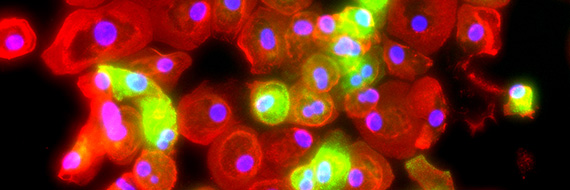Biomaterials and Regenerative Medicine Lab
 Manipulation of Macrophage Behavior
Manipulation of Macrophage Behavior
Harnessing the Inflammatory Response for Tissue Regeneration
The inflammatory response plays a major role in the body’s response to injury, disease, or implantation of a biomaterial. When the inflammatory response functions normally, it can be a powerful force that promotes tissue repair and regeneration, but when it goes awry, disease takes hold and healing is impaired. The goal of the Biomaterials and Regenerative Medicine Laboratory at Drexel University is to understand the mechanisms by which the inflammatory response orchestrates successful tissue regeneration and to develop novel biomaterial strategies that apply these principles to situations in which tissue regeneration is impaired. In particular, we focus on the behavior of the macrophage, which can rapidly change behavior in response to environmental stimuli to promote inflammation (M1), tissue deposition (M2a), or remodeling (M2c). Through their dynamic phenotypic changes, macrophages function as major regulators of healing. Current major initiatives including tracking macrophage phenotype changes in the healing (or lack thereof) of human chronic diabetic foot ulcers, which holds potential to allow a personalized medicine approach to wound care, and the development of novel drug delivery strategies that harness macrophage behavior to promote tissue regeneration and healing.
Website
Biomaterials and Regenerative Medicine Laboratory